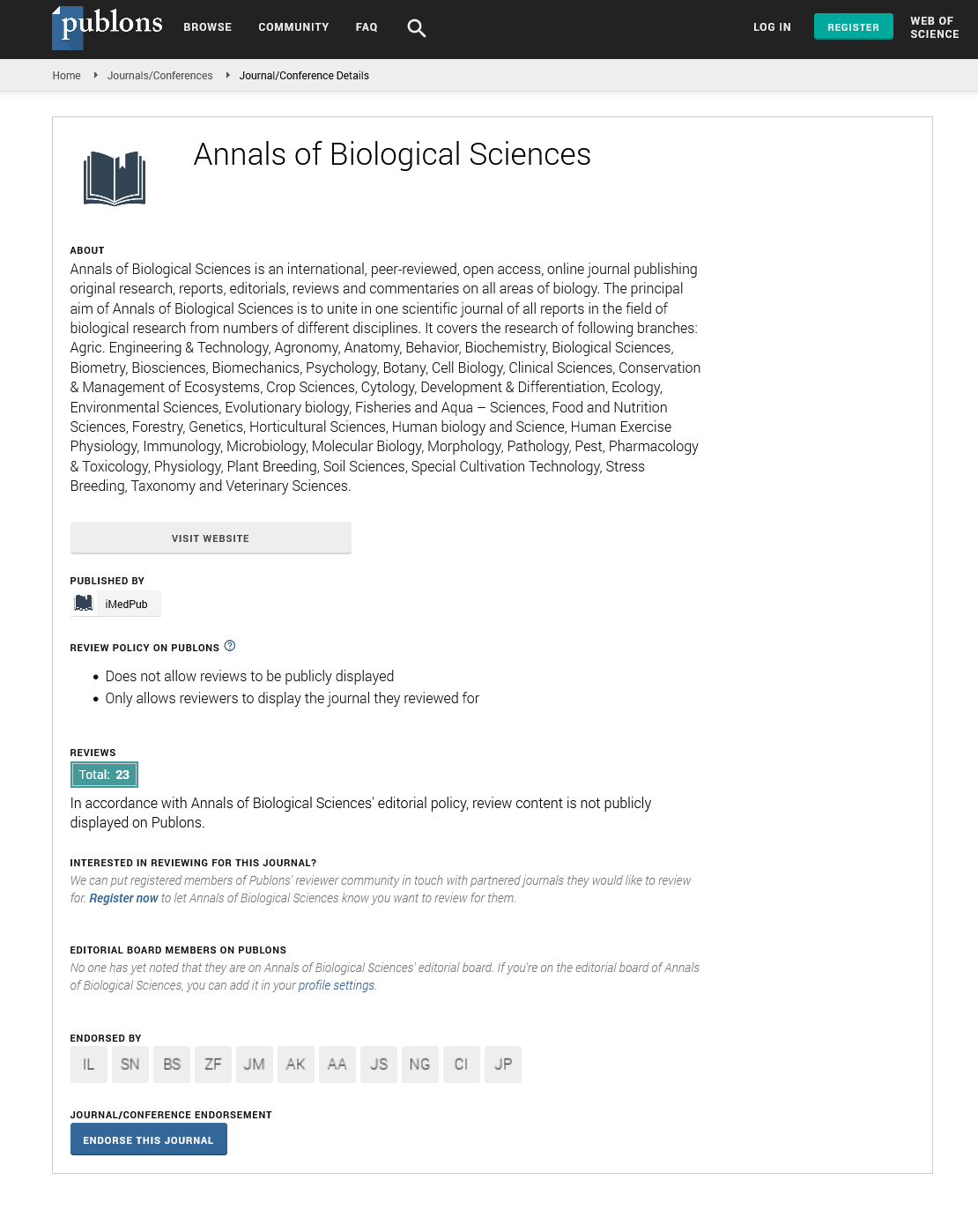ISSN : 2348-1927
Annals of Biological Sciences
Rice cultivation and greenhouse gas emissions: a review and conceptual framework with reference to Ghana
ANNUAL BIOTECHNOLOGY CONGRESS
August 17-18, 2017 | Toronto, Canada
George Yaw Obeng
Arizona State University, USA
Posters & Accepted Abstracts: Ann Biol Sci
DOI: 10.21767/2348-1927-C1-003
Abstract
Rice is an essential crop in Ghana. Several aspects of rice have been studied to increase its production; however, the environmental aspects including impact on climate change, have not been studied well. There is therefore a gap in knowledge, and hence the need for continuous research. By accessing academic portals, such as Springer Open, InTech Open, Elsevier, and the Kwame Nkrumah University of Science and Technology├ó┬?┬?s offline campus library, 61 academic publications including peer reviewed journals, books, working papers, reports, etc., were critically reviewed. It was found that there is a lack of data on how paddy rice production systems affect greenhouse gas (GHG) emissions, particularly emissions estimation, geographical location, and crops. Regarding GHG emission estimation, the review identified the use of emission factors calibrated using temperate conditions which do not suit tropical conditions. In terms of location, most research on rice GHG emissions have been carried out in Asia with little input from Africa. In regard to crops, there is paucity of in-situ emissions data from paddy fields in Ghana. Drawing on the review, a conceptual framework is developed using Ghana as reference point to guide the discussion on fertilizer application, water management rice cultivars, and soil for future development of adaptation strategies for rice emission reduction and increase in yield.
Google Scholar citation report
Citations : 406
Annals of Biological Sciences received 406 citations as per Google Scholar report
Annals of Biological Sciences peer review process verified at publons
Abstracted/Indexed in
- Google Scholar
- China National Knowledge Infrastructure (CNKI)
- WorldCat
- Publons
- ROAD
- Secret Search Engine Labs
Open Access Journals
- Aquaculture & Veterinary Science
- Chemistry & Chemical Sciences
- Clinical Sciences
- Engineering
- General Science
- Genetics & Molecular Biology
- Health Care & Nursing
- Immunology & Microbiology
- Materials Science
- Mathematics & Physics
- Medical Sciences
- Neurology & Psychiatry
- Oncology & Cancer Science
- Pharmaceutical Sciences
